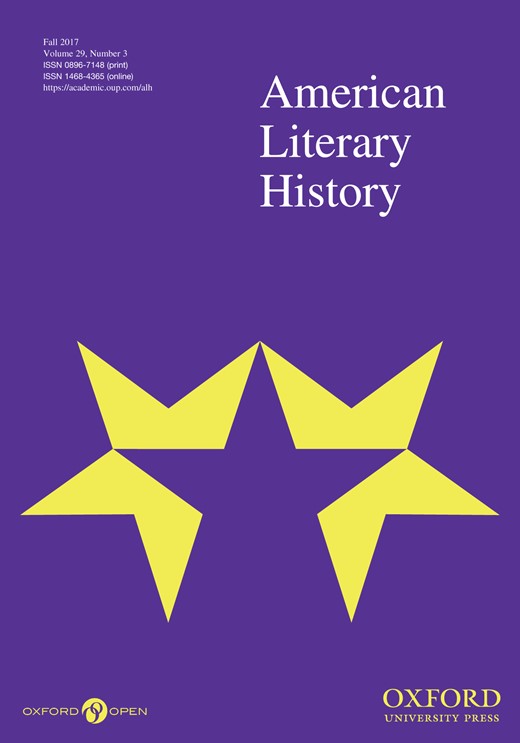-
Views
-
Cite
Cite
Johannes Voelz, Aestheticizing Insecurity: A Response to Security Studies and American Literary History, American Literary History, Volume 29, Issue 3, Fall 2017, Pages 615–624, https://doi.org/10.1093/alh/ajx018
Close - Share Icon Share
Abstract
This response to the ALH special issue Security Studies and American Literary History (American Literary History, vol. 28, no. 4, 2016) critically scrutinizes the reading methods employed by scholars working in the emerging field of literary security studies. This essay suggests that in the theoretical framework shared by most contributors to the issue, security is understood as a biopolitical modality of wielding power over the population. The aim of most of the articles collected here is to elucidate this biopolitical modality with the help of literary fiction. The critics thus practice a “security realism,” which presupposes the mimetic representation of an extra-literary security regime by fictional works. Highlighting instead the differential logic of literary narrative, this response calls on literary scholars to explore the uses of security and insecurity in the literary imagination. In literary narrative, the essay argues, threat and insecurity do not simply serve the ideological needs of the neoliberal regime of securitization but rather offer enticing aesthetic experiences based on the transformation of weakness into strength. Going against the grain of liberal individualism, strength here need not be tied to notions such as autonomy, self-subsistence, or sovereignty. As an analysis of the poetics of insecurity shows, it can also reside in the recovery of meaning that emerges from an insight into human limitations.




